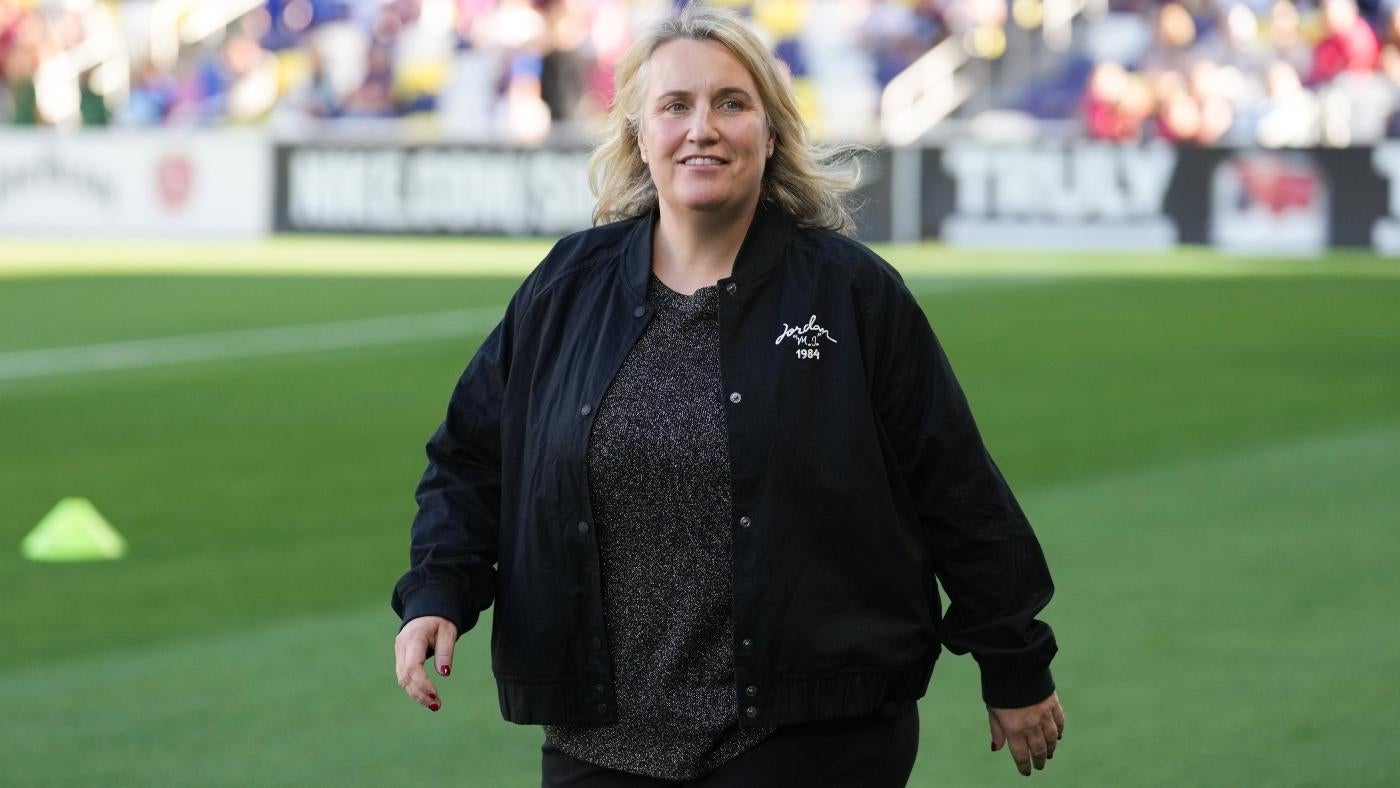
US women’s national team lead educator Emma Hayes said the imperfections of individual praise in team sports then won the women’s Johan Cruyff Award in the Ballon d’Or rite, especially given the obvious inequalities that live to tell the story in football.
Hayes received the coaching award on Monday for her achievements over the past year with both Chelsea and the USWNT. She concluded her 12-year development with Chelsea by winning the Women’s Super League title in May and followed it up by winning Olympic gold with the USA just three months later, although she decided to thank her players and staff instead. of herself.
“I think you ask any coach this and most of the time they would say the same thing,” Hayes said at a press conference Tuesday before the USWNT’s friendly with Argentina. “What we like most is being part of a team, so individual honors, for me, are the least interesting part. I love team awards and winning gold medals or winning WSL championships, for me, is what gives me “For me it is great satisfaction. However, we are only as good as our players and I have been lucky enough to coach some wonderful players both at Chelsea and here with the national team… It is a great honor for me and my family and it is a beautiful trophy. and one I will proudly display at home.”
Hayes also praised her competition for the award, along with Jonatan Giraldez, who finished second and went on to win the UEFA Women’s Champions League with Barcelona, and Arthur Elías, who placed third in the then-leader of Brazil in the silver medal at the Olympic Games.
“Does Jonathan Giraldez deserve one? Yes, he deserves it, but I think the Brazil coach deserves it because he did a tremendous job this summer,” he said. “I’m not the biggest fan of [the awards] “Because I feel like they create more division than unity, but I also understand, like a major industry award like an Oscar or whatever, a music award, that those things have to happen.”
The ultimate educator was also quick to praise the five USWNT players who were nominated for the Ballon d’Or, which was won by Spanish and Barcelona standout Aitana Bonmati for the second year in a row.
“I think it’s been a really good professional year for me and I’m very grateful but also very proud of the players, whether it’s Alyssa [Naeher]the triple espresso (Sophia Smith, Mallory Swanson, Trinity Rodman), Lindsey [Horan]. “We had four players in the top 10, that’s a great honor,” he said.
On the other hand, Hayes also took the opportunity to criticize the awards for her path to women’s football. The top educator could not wait for the rite in Paris since it was scheduled during a women’s world break, a trip that was also criticized by her counterpart in England, Sarina Wiegman. Hayes approved the award in a prerecorded video message, although the demands are not limited to programming. France Soccer, the monthly edition that organizes the Ballon d’Or, also awards awards for goalkeepers, forwards and young players to men and has not yet developed corresponding awards for women.
“It would be like directing an Oscar, right? Or a Golden Globe. [Awards] without having any women present,” Hayes said. “It just wouldn’t happen and I think too often it’s an afterthought, to be honest with you, and I know there’s nothing I can do to control that. If I’m honest, I’m happy to be with my team. I’m not really one for glamour, although I love Paris. I’m happy to be with my team, but I think for those players and coaches, it’s the only time in the industry where they are recognized and it’s disappointing, but I spoke to the organizers about it and they told me that it’s something that will change in the future. future. Let’s hope so.”
The top educator also noted that the inequalities that also exist within the game likely make it difficult to correctly determine the winners. She criticized the fact that USWNT defender Naomi Girma was not among the nominees, but pointed to women’s soccer’s limited international footprint as the culprit. Several major women’s competitions still lack a significant broadcast offering in national and international markets, limiting audience (and citizen) access.
“We need to continue to make it accessible, whether it’s a [UEFA Women’s] Champions League match versus [Liga F] in Spain or Mexico. I think accessibility is crucial,” Hayes said. “I know 50 journalists vote for it, but are those 50 journalists watching the women’s game at the same level as they watch the men’s game? Probably not, but they might not be able to either, so I think it’s probably necessary (it’s not even a rethink) to make women’s football more accessible first. That’s more important.”

